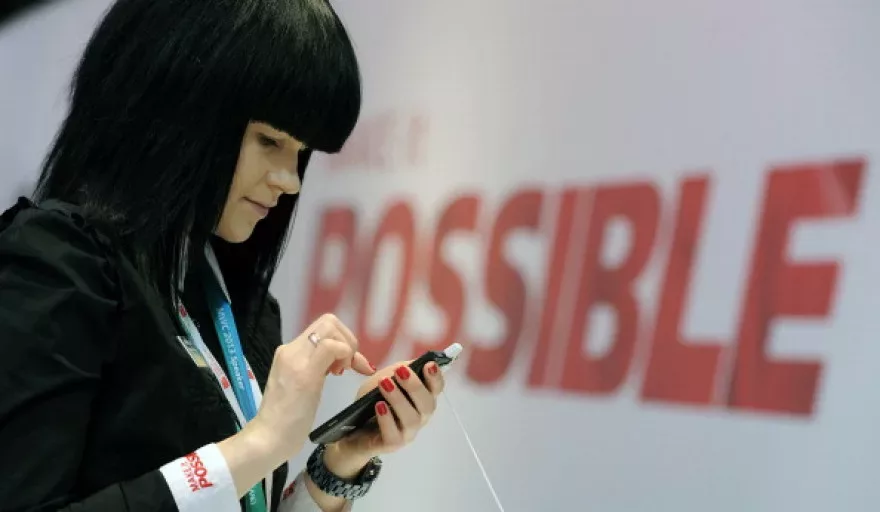APAC Outlook Magazine takes a deep dive into the Mobile World Congress, with highlights from the fourth day.
CISCO CHEF BACKS IOT APPROACH FOR MULTI-SCREEN HOMES
John Chambers, the chairman and CEO of Cisco, hyped up the Internet of Things space by claiming it has the potential to generate $19 trillion worth of profit and economic benefits over the next decade, with $14.4 trillion driven by the private sector and $4.6 trillion by the public sector.
“If you really use these devices properly you begin to see the profit opportunity,” Chambers said in his keynote presentation looking at how services on smartphones, tablets and televisions can all be brought together in the homes of consumers.
“I really think it’s going to be about the battle for the internet of everything,” added Chambers.
The Cisco chief likened the integration of on-screen services and entertainment to the efforts of Israel to become a digital country, Barcelona’s integration of mobile technology, and the use of mobile in retail.
“If we only do single applications within a home or city, you don’t get the economic payback. The key point here isn’t about connectivity – it’s about connecting with people, with processes, and with data,” he explained.
He added that the companies that will win in the multi-screen home will be those able to connect devices and services together effectively: “If you don’t play architecturally across the home, then you get left behind.”
IBM CEO PREDICTS BIG DATA FUTURE
Virginia Rometty, CEO of IBM, outlined her company’s vision of how mobile services and enterprise technology will be revolutionised through the use of big data in last night’s Mobile World Live keynote.
“I think this is both an exciting time but this is also a disruptive time for everyone in industry,” Rometty said, before citing three historic shifts that will have important implications for the mobile sector: data, cloud and engagement.
Data is now “the world’s new natural resource” and will become a key competitive advantage for every industry, according to Rometty. “I think we will look back at this time and see data as a resource that drove the twenty-first century,” she said.
In addition, cloud computing will change how services are delivered, while social and mobile technology is already impacting how people engage with businesses and each other.
With these shifts, companies will need to offer “speed, personalisation and security and trust” to meet customers’ expectations — with analytics playing a major role.
Rometty predicted a new era of “cognitive computing”, which IBM aims to drive by offering its Watson supercomputing capabilities to businesses and developers via the cloud.
The IBM chief announced the Watson Mobile Developer Challenge for developers to build mobile apps that make use of the capabilities of the supercomputer, which learns from interactions and can answer complex questions.
Three winning developers will receive design consulting and support from IBM to bring their technology to market.
BITCOIN CAN SAVE LACKLUSTRE MOBILE PAYMENTS, SAYS BITCOIN FOUNDATION
Crypto currency Bitcoin’s success is built on bypassing traditional authorities in the finance world and could perform the same trick for mobile money and payments, said Jon Matonis (pictured), executive director of the Bitcoin Foundation.
Speaking at this morning’s keynote, Matonis characterised mobile payments as “lacklustre, particularly in developed economies,” blaming government, banks and operators “each trying to secure the coveted payments pie”.
Together, he said, the trio “had strangled m-payment adoption”. However, help was at hand as decentralised Bitcoin can subvert the powers-that-be, said Matonis.
The upstart currency’s strength comes from being non-political as well as bypassing bank accounts and cards, meaning “no need for silly dongles and awkward squares”, a reference to the popular Square system for handling card payments in the US.
The third benefit of Bitcoin is in enabling mobile payments via standalone apps working with QR codes, meaning consumers do not need to hold m-pay accounts with mobile operators.
Matonis said this year and 2015 will see Bitcoin filter even more into consumer usage thanks to a greater number of user-friendly apps.”Regular retailers won’t have to worry about murkiness in the background which will lead to a wave of adoption”
SOURCE: www.mobileworldlive.com




































